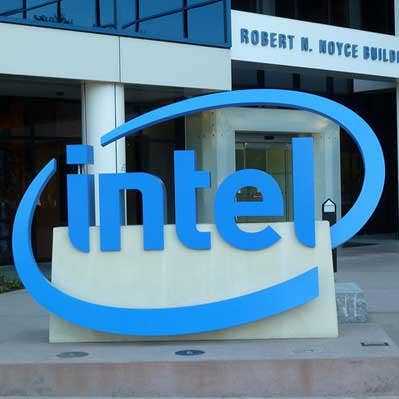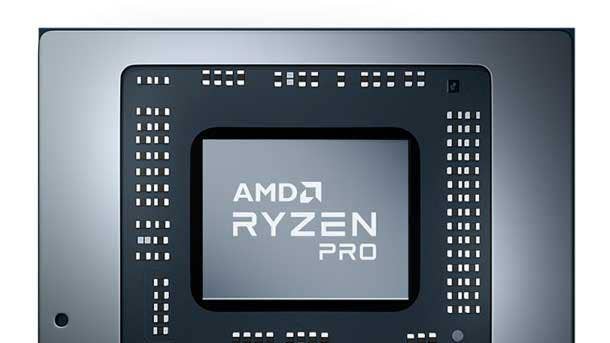5 Big Statements In Hedge Fund Third Point’s Letter To Intel
The New York-based hedge fund has taken a ‘significant stake’ in Intel and said it will put up a fight if the chipmaker’s board doesn’t consider major structural changes it has proposed.

Third Point Wants To Address ‘Substantial Problems’ At Intel
Third Point LLC is urging Intel to consider selling its manufacturing operations and “failed acquisitions” to address what the New York-based hedge fund is calling “substantial problems.”
Daniel Loeb, CEO and founder of Third Point, made the recommendations in a Tuesday letter, which was addressed to Omar Ishrak, chairman of Intel’s board, and includes a scathing critique of the chipmaker’s leadership and its manufacturing capabilities. Third Point, which provided the letter to CRN, has taken a “significant stake” in the Santa Clara, Calif.-based chipmaker and plans to acquire more shares to push for change, Loeb said.
[Related: How AMD CEO Lisa Su Plans To Keep The Pressure On Intel, Nvidia]
Intel, in a brief statement posted to its website, said it “welcomes input from all investors regarding enhanced shareholder value.” The company added: “In that spirit, we look forward to engaging with Third Point LLC on their ideas towards that goal.”
What follows are five big statements Loeb made in his letter to Intel’s board, including his concerns about the company’s ability to retain top talent and big customers like Apple.

Intel Has ‘Underperformed’ Due To Manufacturing Issues
Loeb criticized Intel for “dramatically” underperforming on the stock market in comparison to its peers, pointing to how it has lost “over $60 billion of market capitalization over the past year alone.”
The hedge fund executive said Intel’s underperformance was the result of it losing its leadership in process manufacturing to chip manufacturers TSMC in Taiwan and Samsung in South Korea, which are both ahead in making denser, more efficient chips.
“Previously reliably able to progress its process technology every two to three years, Intel has been stuck at its 14-nanometer node since 2013, while TSMC and Samsung both transitioned to 5-nanometer this year and Intel’s plan to roll out its 7nm node late 2022 or early 2023 will place the company several years behind its Asian peers for at least the first half of this decade,” Loeb wrote. “This lag in advanced semiconductor manufacturing is a vulnerability that must be corrected.”
Intel has experienced issues manufacturing processors with more tightly packed transistors over the last several years, which resulted in a multi-year delay of its 10nm products that debuted in volume last year and, more recently, a six-month delay for its upcoming 7nm products.
Bob Swan, Intel’s CEO, said in October that the company will decide by January whether the chipmaker will further invest in its 7nm manufacturing capabilities or outsource at least some 7nm products to external foundries.
Intel in a recent press release said the company has doubled its “combined 14nm and 10nm manufacturing capacity” in 2020 compared to its 2017 wafer capacity.

Intel’s Manufacturing Issues Have Helped AMD, Nvidia
With Intel falling behind TSMC and Samsung in manufacturing, it has allowed fabless semiconductor companies AMD and Nvidia to “gain significant market share at Intel’s expense,” Loeb said.
This means AMD has been able to challenge Intel’s core products while Nvidia has thrived in a market where Intel has only recently begun mounting a serious challenge.
“Under the visionary leadership of Dr. Lisa Su, AMD put its liquidity concerns behind it and has been taking meaningful market share in Intel’s core PC and data center CPU markets with its Ryzen and EPYC product lines,” he wrote. “Nvidia’s GPUs have dominated the nascent market for training complex computational models used in AI applications, a market in which Intel has largely been absent.”
Meanwhile, large customers like Apple, Microsoft and Amazon have begun making their own processors, which are manufactured overseas.
As a result, Loeb said Intel must “offer new independent solutions to retain those customers rather than have them send their manufacturing away.”
“Just as Netflix uses Amazon’s [Amazon Web Services] for cloud services, Intel must figure out how to serve its competitors as customers,” he said.

Intel’s ‘Loss Of Manufacturing Leadership’ A National Security Issue
Loeb said Intel’s “loss of manufacturing leadership” is a matter of national security for the United States since competitors are relying on foundries overseas like TSMC and Samsung
“Without immediate change at Intel, we fear that America’s access to leading-edge semiconductor supply will erode, forcing the U.S. to rely more heavily on a geopolitically unstable East Asia to power everything from PCs to data centers to critical infrastructure and more,” he said.
This is one reason why Third Point has recommended that Intel explore whether it “should remain an integrated device manufacturer”—which could involve the company separating Intel’s chip design operations from manufacturing, Reuters reported, citing unnamed sources.

Intel Has A ‘Human Capital Management Problem’
Loeb said Intel has a “human capital management problem” and criticized the company for losing “many of its most inspiring and talented chip designers and leaders.”
The hedge fund executive added that “those who remain (several of whom are highly regarded in the industry) are becoming increasingly demoralized by the status quo.”
“Intel was built on the vision of engineering genius and, without the best talent, the current trajectory will not be reversed,” Loeb said in the letter. “Solving Intel’s human capital management issue should be the board’s most urgent task.”
Among the chip designers Intel lost this year was Jim Keller (pictured), AMD’s former top chip designer, who resigned two years after Intel hired him away from electric car maker Tesla to design next-generation processor technologies.
Loeb criticized Intel’s board of directors for allowing the company’s management team “to fritter away the company’s leading market position while simultaneously rewarding them handsomely with extravagant compensation packages.”
“Stakeholders will no longer tolerate such apparent abdications of duty,” he said.

Intel Has ‘Other Specific Issues,’ And Third Point Will Fight To Address Them
While Loeb offered selling Intel’s manufacturing operations and “failed acquisitions” as two possibilities for “strategic alternatives” the company should consider, he said the chipmaker has “other specific issues” Third Point would like to discuss privately.
Loeb indicated Third Point will fight to address the issues outlined in the letter if needed.
“Although we expect these conversations to be productive, we are filing for Hart-Scott-Rodino approval with the Federal Trade Commission to acquire incremental common shares and engage more actively with the company, as well as to preserve the option to submit nominees for election to the board at the 2021 Annual Meeting should we sense a reluctance to work together to address the concerns we have raised in this letter,” he said.